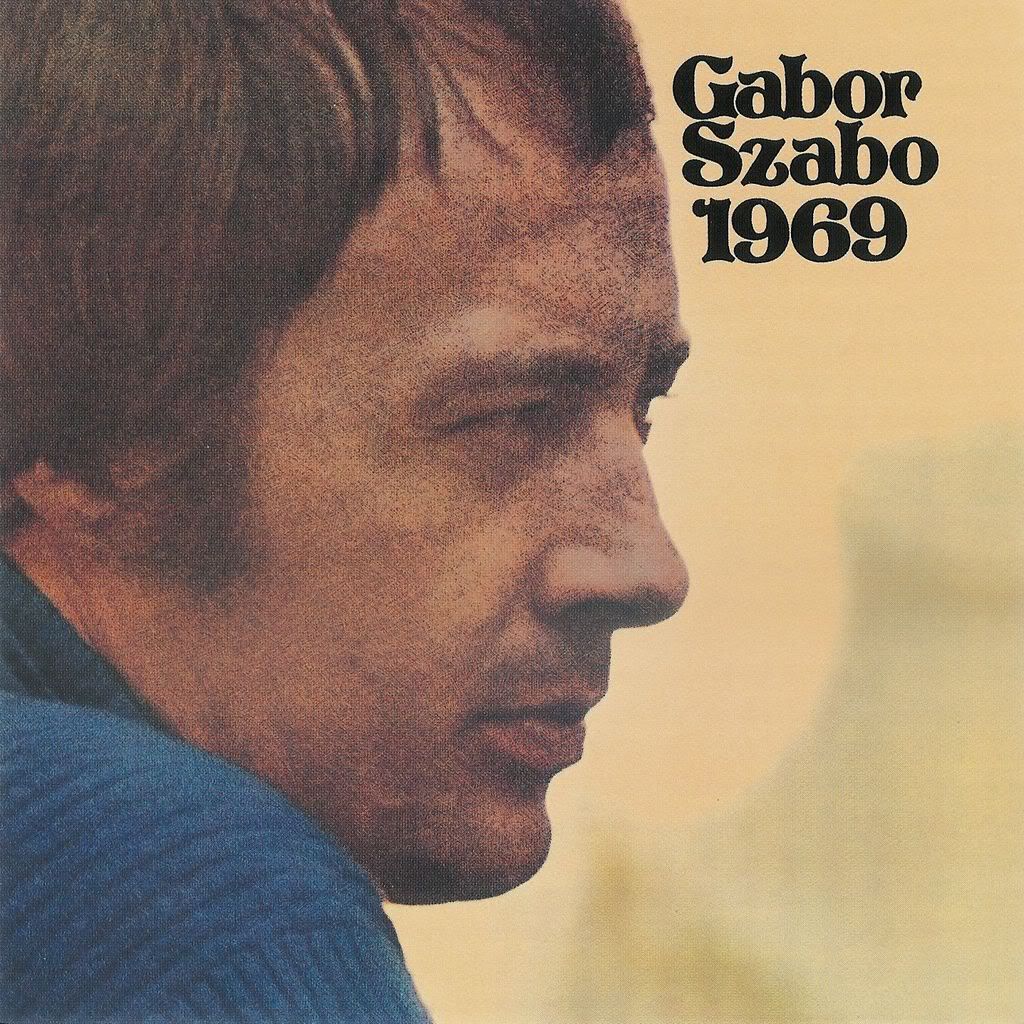 They don't make 'em like Cal Tjader any more. As a band leader he had a very straight forward vision: make interesting music that audiences could relate to. He did this for more than three straight decades, releasing dozens of albums on many record labels. He worked with many different bands with members such as Mongo Santamaria, Willie Bobo, Vince Guaraldi, Al McKibbon, Pete Escovedo, Coke Escovedo, Clare Fischer, Poncho Sanchez, Lonnie Hewitt, Armando Peraza, Tito Puente, Stan Getz, Carmen McCrae, Airto, Joao Donato, Lalo Schifrin, George Duke, Charlie Byrd, Eddie Palmieri and many more. Paraphrasing Cal's biographer (book due out in a couple years), musicians liked to play with Cal because he would give great sidemen the spotlight to shine, something that Cal's East Coast colleague Tito Puente would never do and resultingly Mongo and Willie jumped ship for Cal's cool latin band in the late 50s.
They don't make 'em like Cal Tjader any more. As a band leader he had a very straight forward vision: make interesting music that audiences could relate to. He did this for more than three straight decades, releasing dozens of albums on many record labels. He worked with many different bands with members such as Mongo Santamaria, Willie Bobo, Vince Guaraldi, Al McKibbon, Pete Escovedo, Coke Escovedo, Clare Fischer, Poncho Sanchez, Lonnie Hewitt, Armando Peraza, Tito Puente, Stan Getz, Carmen McCrae, Airto, Joao Donato, Lalo Schifrin, George Duke, Charlie Byrd, Eddie Palmieri and many more. Paraphrasing Cal's biographer (book due out in a couple years), musicians liked to play with Cal because he would give great sidemen the spotlight to shine, something that Cal's East Coast colleague Tito Puente would never do and resultingly Mongo and Willie jumped ship for Cal's cool latin band in the late 50s. Cal's an unlikely source for hip-hop samples with his white-bread collegiate look and chunky glasses, but a quick survey of hip-hop classics will show you that Tjader had a knack from creating interesting sounds that made for great moody samples (Midnight Marauders interlude music, for instance). Just ask Pete Rock:
“It’s coming soon, so chill and don’t stress the creator/ I’ll kick funk loops from here to Cal Tjader…" (from the Pete Rock and CL Smooth song “In the Flesh,” from their “Main Ingredient” album).
This blog has a great two-part mix with Tjader originals interspersed with songs that sampled him, many of them rare instrumental versions.
I've been working on my Tjader collection since moving to the Bay Area and have nearly completed the 1965-1975 era, which is probably my favorite as it sees Tjader trying to stay hip and relevant and doing a pretty damn good job. The early sixties saw him switch from the Bay Area-founded Fantasy Records to the more nationally-focused Verve Records where he scored his biggest hit, "Soul Sauce". His mid-sixties Verve albums range from soft ballads to funky latin fusion and are all excellent listens. In the late 60s he founded Skye records with like-minded musical oddballs: Gabor Szabo and Gary McFarland and released three albums: Solar Heat, Sounds Out Burt Bacharach and Plus In. A recently released session from those years "Latin + Jazz = Cal Tjader" is particularly revelatory in that it represented, according to Tjader's biographer, Cal's preferred live repertoire: a couple ballads mixed in with some mid-tempo Latin-Jazz numbers.
When Skype folded after a couple years Cal went back to Fantasy and put out his funikiest and hardest-hitting Latin albums, in my opinion: Agua Dulce (1971), Tjader (1971), Last Bolero in Berkeley (1973) and Primo (1973). The seventies also saw him focus a lot on recording live, with great results, on Live at the Funky Quarters (1972), Puttin' It Together (1974), At Grace Cathedral (1975) and Here (1977). As you can see from the tracklist below, some of the best versions of his most loved songs can be found on these live albums. All in all, I don't think Cal ever made a bad album, nor did he fully sell-out in a commercial sense - there's no such thing as a Cal Tjader disco album and you can't say that for most jazz musicians that survived the 70s. I've assembled some of my favorite "Tjader Tjams" from the period 1964-1974 for your enjoyment. Eventually, I hope to get around to putting together the ying to this yang, "Tjader Tjems", the mellow companion to this Latin groovathon. Tjam On!

The Ambassador Presents Cal Tjader - Tjader Tjams
1. Moneypenny Goes for Broke, from: Sounds Out Burt Bacharach
2. Souled Out, from: The Prophet
3. Armando's Guajira (live), from: Latin + Jazz = Cal Tjader (CD only)
4. Soul Sauce (Guachi Guaro), from: Soul Sauce
5. Cubano Chant (live), from: Live at the Funky Quarters
6. Fried Bananas, from: Solar Heat
7. La Murga Pana Mena, from: Primo
8. Amazonas (live), from: Puttin' It Together
9. Agua Dulce (Cool-Ade), from: Agua Dulce
10. Mambero, from: Tjader
11. Ran Kan Kan, from: Agua Dulce
12. Solar Heat, from: Solar Heat
13. Leyte (live), from: Live at the Funky Quarters
14. Gimme Shelter, from: Agua Dulce
15. I Showed Them, from: Tjader
16. Walk on By, from: Sounds Out Burt Bacharach
17. Never My Love, from: Solar Heat
18. Never Can Say Goodbye, from: Last Bolero in Berkeley
19. Morning, from: Agua Dulce
20. Curtain Call, from: Last Bolero in Berkeley
























.jpg)














